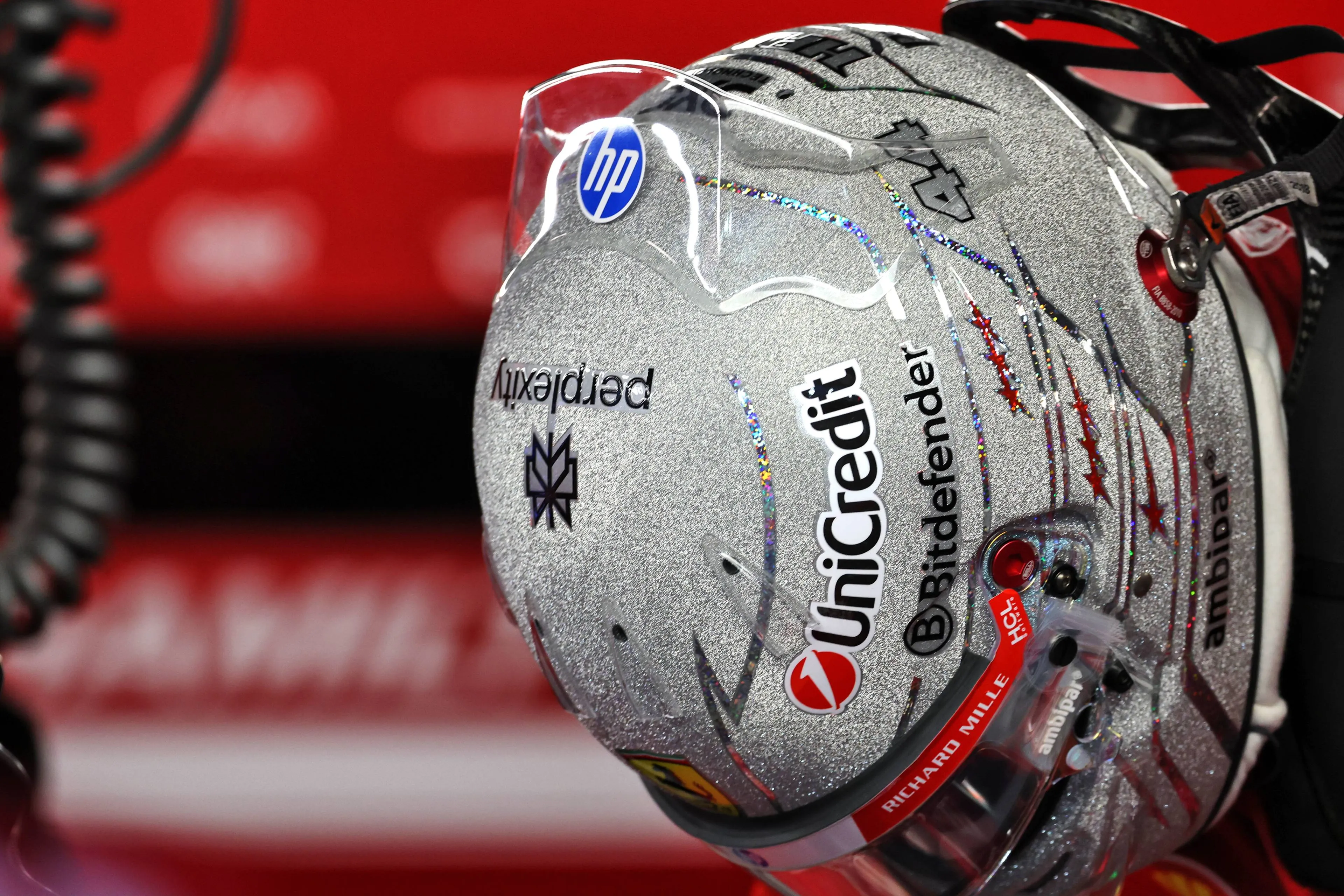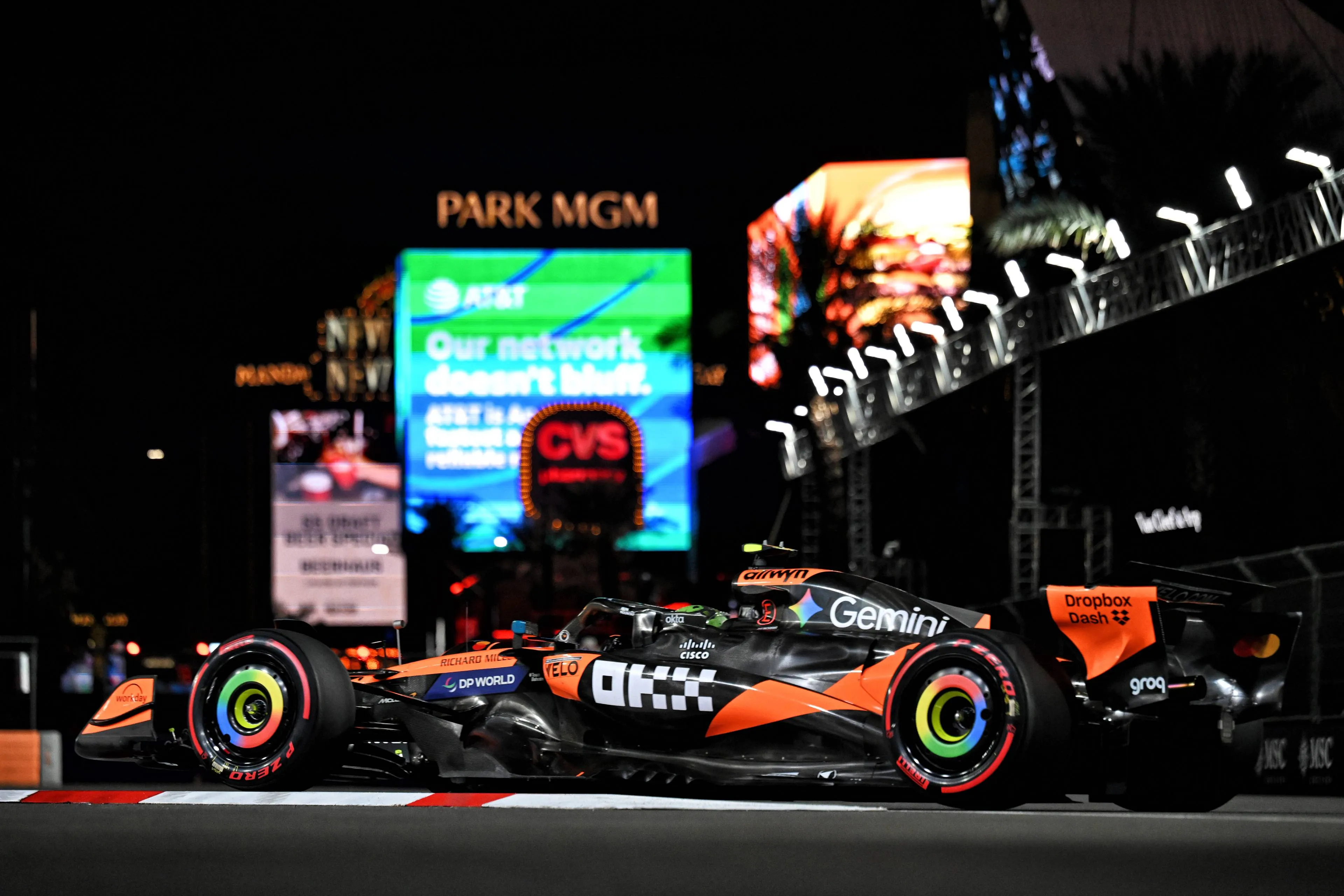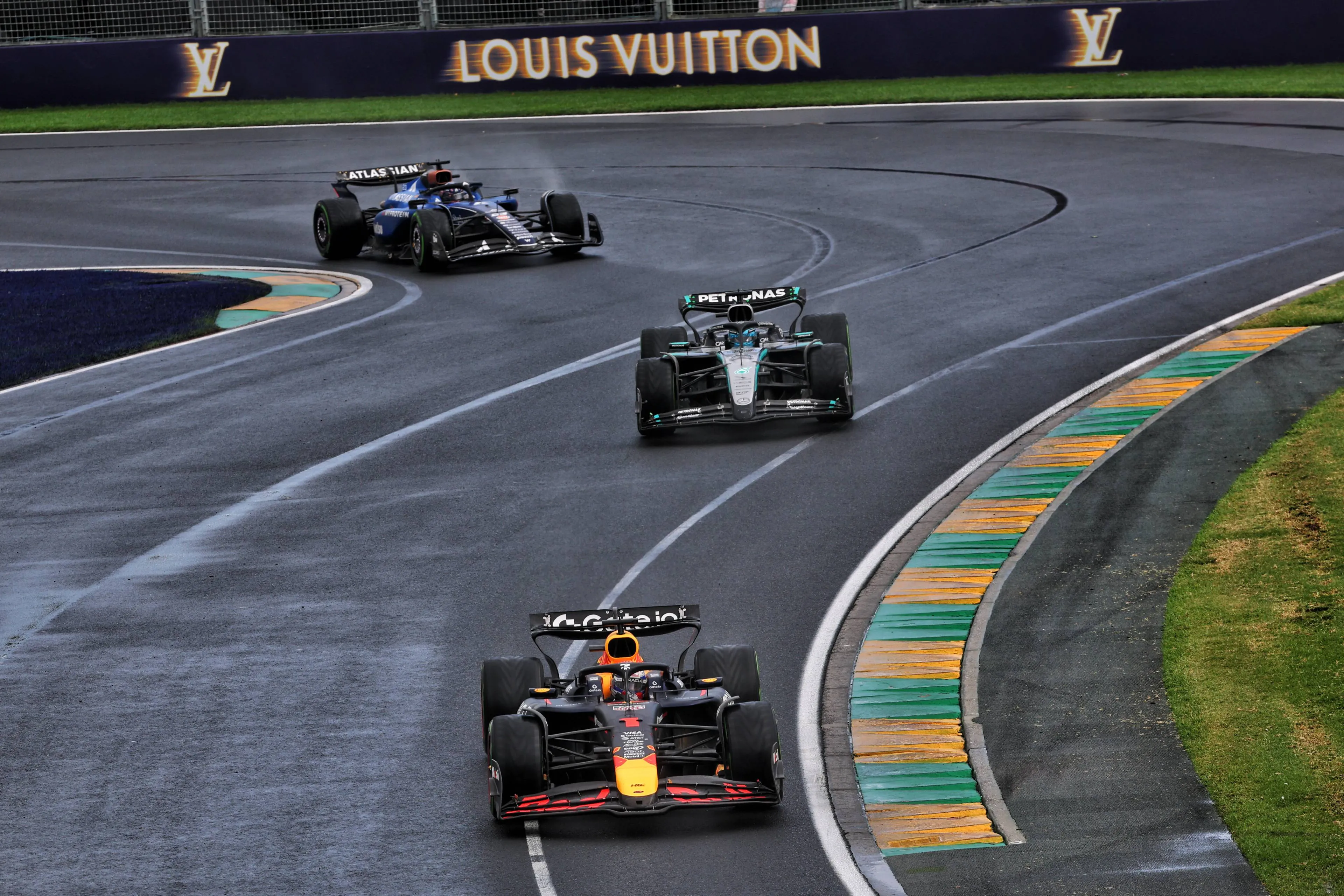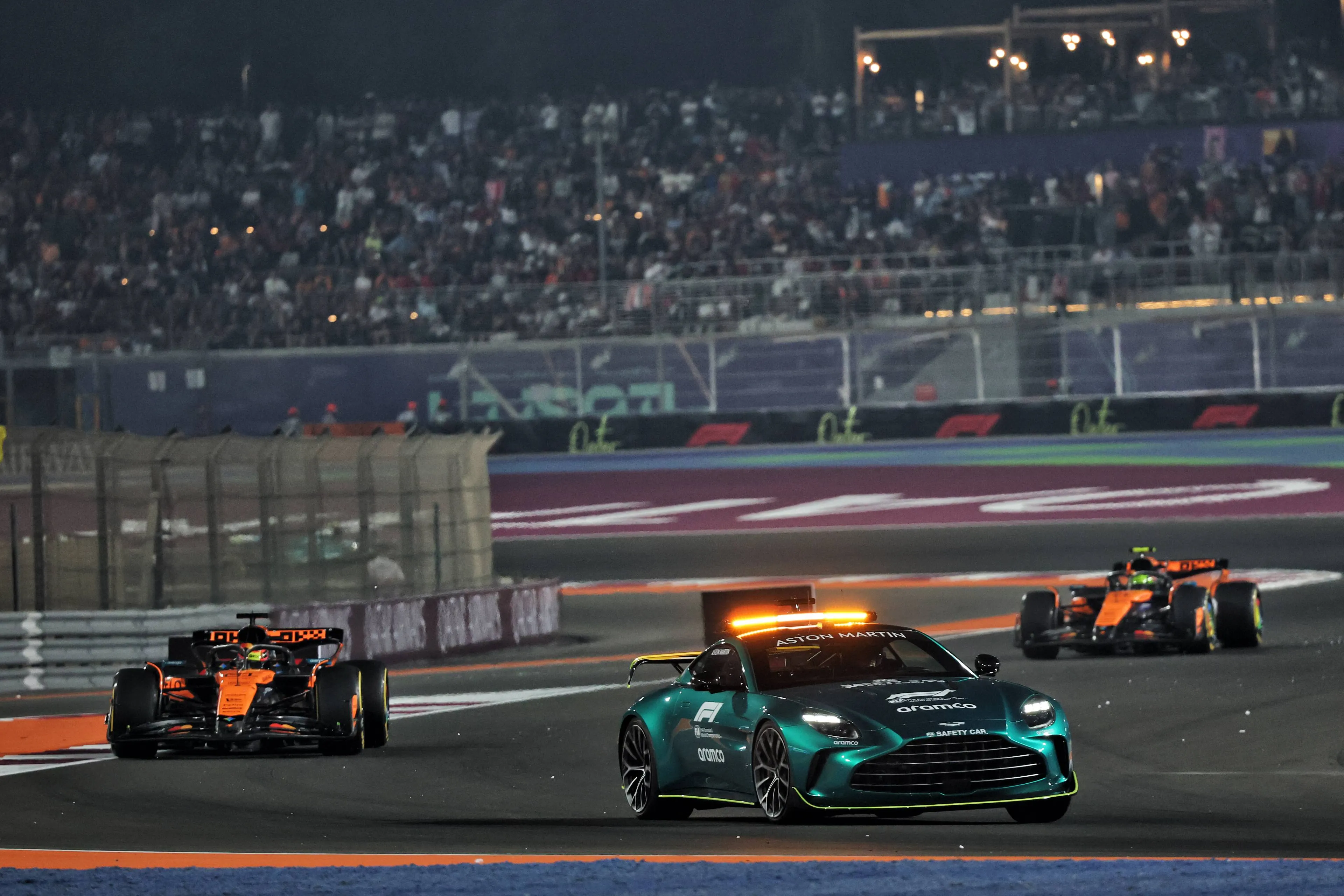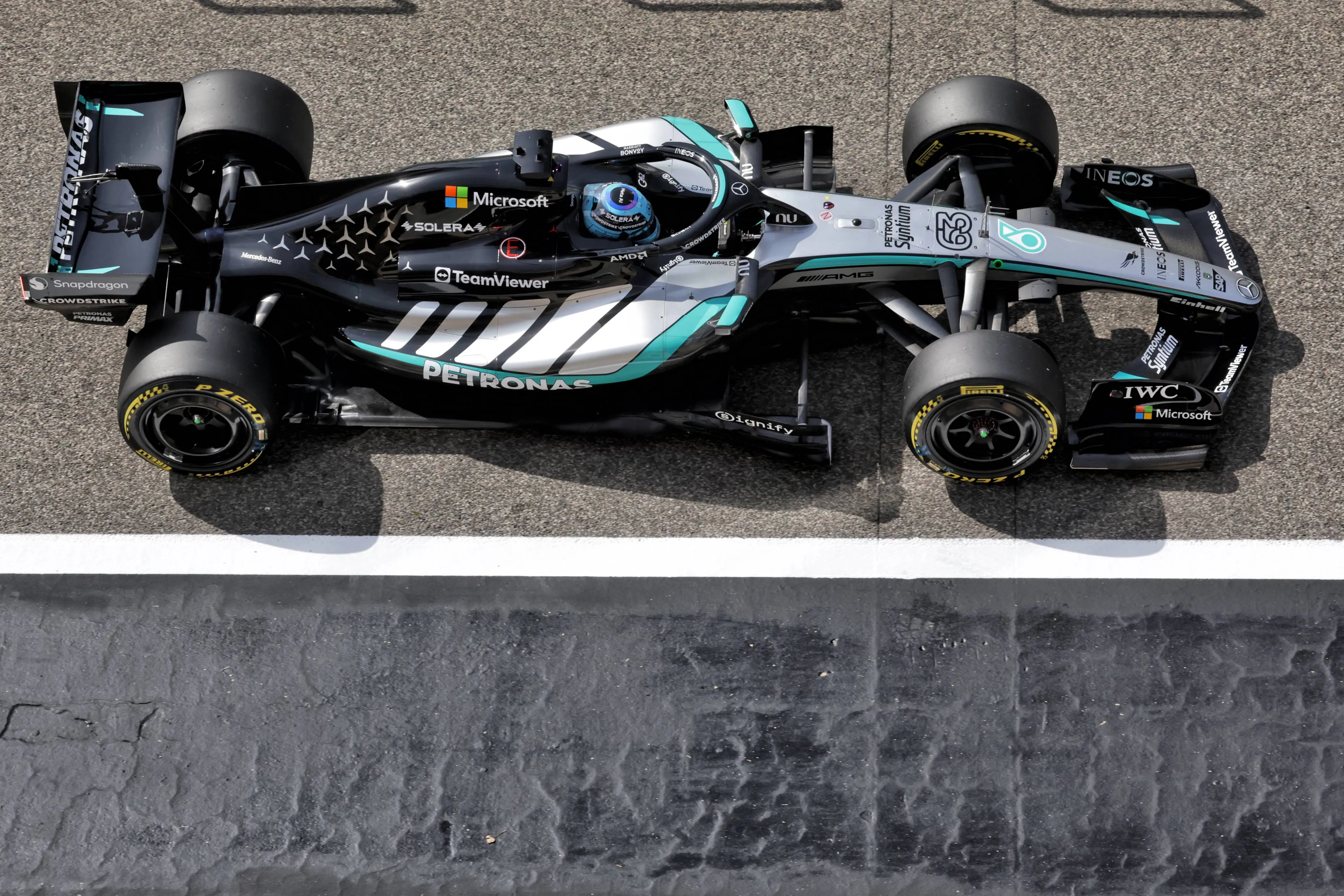
Photo: Red Bull Content Pool
FIA 'resolves' Stella's Verstappen power unit question for 2026
10:19, 21 Nov 2025
Updated: 12:40, 21 Nov 2025
20 Comments
FIA Single-Seater Director Nikolas Tombazis explained that a power unit change will fall under the cost cap in the 2026 season, no matter the reason.
"It has been one of the areas where next year, with the cost cap for the PU manufacturers as well as the teams, this matter is resolved."- Nikolas Tombazis
Following his Q1 exit in Brazil, Red Bull opted to replace Max Verstappen's power unit to unlock extra performance ahead of the race.
McLaren team principal Andrea Stella had raised the question of whether the cost of changing a power unit for performance rather than reliability reasons would fall under the budget cap — something GPblog has been able to confirm it does.
Asked about the matter in Las Vegas, Tombazis said: "What we've not been keen to get involved in, as the FIA at the moment, is a situation where when there's an engine change, we have to argue with the team or the PU manufacturer whether a bit of telemetry indicates potentially a reliability issue or not."
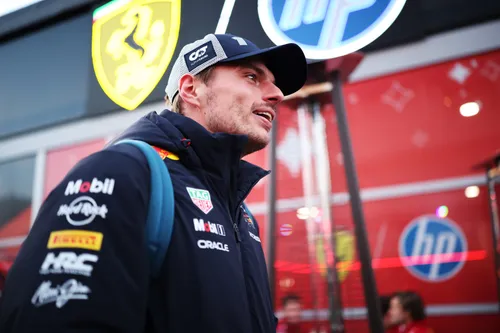
Max Verstappen Photo: Red Bull Content Pool
Tombazis further stressed that, as things stand now, the FIA don't feel "we have the expertise to argue with them whether it's really a reliability or strategic change.
"In some cases it's obviously in one or the other camp. But when you're in that crossover area, it would be difficult. This has been a weakness in the current regulations — the combination of Financial plus Technical and Sporting — and it's been an area where we've adopted this approach where we accept these changes without getting into discussion about the impact on the cost cap."
Read also
The Greek engineer admitted that this aspect represents a weakness in the current regulations, but said it will be addressed next season, leaving fewer grey areas open to interpretation.
"It has been one of the areas where next year, with the cost cap for the PU manufacturers as well as the teams, this matter is resolved, because the PU manufacturers would never find it convenient to make a strategic change, because each time it's going to cost them approximately the cost of an engine — a million, if it's just the internal combustion or whatever."
He concluded: "That will provide a natural mechanism. So we think it's a weakness in the current set of regulations, where there's no PU cost cap, but we think it gets resolved completely next year. It will stop being a topic of discussion."
Read also
GPblog's latest F1 Paddock Update
Want to stay up-to-date with what happens in the F1 paddock? Then GPblog's F1 Paddock Update video is the perfect way to do it. Subscribe to GPblog's YouTube channel and turn on notifications to never miss the latest episodes.
Read also
Read more about:
Rumors
Popular on GPBlog
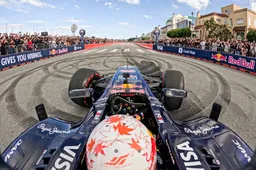
1
Scary moment for Tsunoda as Red Bull car catches fire in front of crowd
1579 times read

2
Formula 1 CEO drops hint over potential major surprise for 2027 season
1120 times read
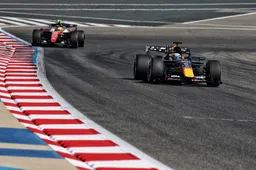
3
Formula E co-founder sends clear message to F1 over electrification direction
795 times read
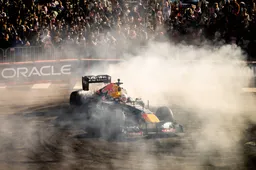
4
F1 Today | Tsunoda drama unfolds as Domenicali teases joint F1 launch comeback
681 times read
Loading




